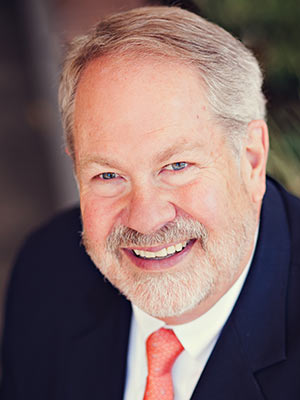
There are many ways to define “philanthropy.” For some, the term conjures up images of an elite, private group of wealthy, often old, often white business leaders making donations to nonprofit groups. But that’s not the case as we prepare to bring an end to 2019. I believe the best definition of philanthropy can be found with Merriam-Webster, which paints a much broader, more diverse picture of the practice, saying it is “goodwill to fellow members of the human race, an active effort to promote human welfare an act or gift done or made for humanitarian purposes.”
At its heart, philanthropy is about how each one of us gives back to help serve and support the common good so that every individual and family can flourish and thrive. While private and community foundations, corporate partners and individual donors may comprise the largest portion of financial investment in this sector, philanthropic support comes from all of us and is really a reflection of and dependent upon the individuals who comprise the community. Everyone who gives in time or resources is a philanthropist and we have never needed more.
While funders have an obligation to remain faithful to the original intent and mission set forth by our donors and benefactors, our work does not exist in a bubble. Our work must evolve and address the shifting needs of the communities we serve. From that perspective, it can be challenging to project what “the future of philanthropy” will look like at any given point because we do not know what the unique needs of any given community may be in time.
That being said, there are some key trends gaining steam that will have a significant impact on the world of philanthropy, from the region’s largest nonprofit and community foundations to corporate giving programs to the way individuals practice giving in their own neighborhoods.
Discussion and debate surrounding the 2020 elections may influence giving. Topics that generate the most debate between candidates will likely rise to the forefront of consciousness of discussion among communities. In turn, the organizations working closely on these issues may find a groundswell of fundraising support or increased obstacles from critics. Smart organizations will look to the landscape beyond November and plot a course that allows them to navigate this season focusing on planning and working on long-term priorities for success.
In addition, individuals and groups who approach a topic from different perspective may find it more challenging to collaborate as partisan lines attempt to create separation between sides. As we have shared, communities thrive when “unconventional collaborations” between groups that otherwise would not partner on a topic find common ground to address a shared issue. All partners in the nonprofit ecosystem – from funders to community organizations to individual leaders – will need to resist that partisan pull and remain focused on the task or challenge at hand.
Investing in our communities will become an even more important value for organizations across sectors. No business, nonprofit or government agency exists in a vacuum. Organizations that invest in the individuals and groups that help serve and support all members of our community are investing in their own growth and longevity as much as they are the community itself. Investments in educational programming help support robust talent pipelines of professionals who grow up with deep roots to their local community. Investments in arts and culture efforts help preserve and celebrate the diverse history and heritage of a region. Investments in groups preserving natural habitat and conserving environmental resources help ensure generations of families will be able to thrive in a given space for years to come.
Furthermore, we see that organizations that choose to invest in their community, be that through financial contributions, providing employee hours for volunteer service projects or sharing resources with nonprofits, attract loyal, top talent. Today’s employees more and more want to work for organizations that value and invest in the local community. Businesses, nonprofits and agencies that embrace this will attract desirable talent and enjoy greater long-term retention.
Finally, nearly all economic experts project that our economy will not be able to maintain the rapid growth pace we’ve seen over the last several years. Community groups have also been hurt by recent decisions made by Congress regarding tax reform that have, by some estimates, reduced charitable giving to nonprofits. When economic growth slows or retreats, communities need our support more than ever as public services face cuts and jobs may be lost. While we hope that members of Congress will work to introduce policies that encourage everyone to benefit from charitable deductions and inspire more giving moving forward, we cannot be certain this will take place and at what pace. Smart organizations invest in their community in the boom times to help ensure that the people they serve have support when challenging times arise.
A growing chorus of voices seeks productive discussion. More and more we are seeing individuals and communities grow weary of the aggressive “cancel culture” that exploded in popularity over the second half of the previous decade. As discussions swirl around the issue of the day in our public discourse, we also saw a rise in aggressive social media mobbing. Using the wrong language or possessing a different point of view could lead to a reputation being attacked on digital channels, your job or business taken away or even your personal safety threatened. What was particularly tragic about these incidents is that in many cases, they were based on false, incomplete or misrepresentative narratives that were not true to the target’s actions, words or intent.
Thankfully, we are seeing more and more members of our community recognize that “cancel culture” is an ineffective path to solutions that serve and support the common good. While challenging, our communities are best served when individuals and groups from different perspectives can come together to talk openly, honestly and constructively about ideas that allow everyone to flourish. The more we can move away from this social media mob mentality, the more we can help uplift and support our communities through productive collaboration.
A new year brings great opportunity for a fresh start and clear thinking as we plot a course for the months ahead. We are excited to see the many ways the Vancouver and Clark County communities and communities across the Pacific Northwest join together to support those in need and to serve and uplift the common good.
Steve Moore is chief executive officer at the M.J. Murdock Charitable Trust. He can be reached at stevem@murdocktrust.org.








